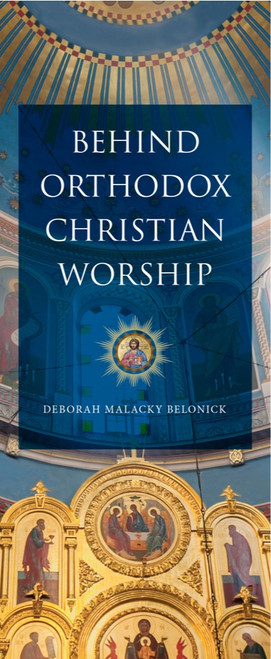The Orthodox Church, with its roots steeped in the early Christian traditions, represents one of the most profound expressions of faith among the Christian denominations. This venerable institution encompasses a rich tapestry of theological beliefs, liturgical practices, and deep historical significance. To fully appreciate what it means to be part of the Orthodox Church, one must embark on an exploration of its origins, its worship practices, and the profound spirituality it offers to its adherents.
Historical Foundations of the Orthodox Church
The history of the Orthodox Church is intricately connected to the apostolic tradition. The Church regards its origins as tracing back to the very apostles themselves, who established communities of believers across the ancient world. The term “Orthodox” is derived from the Greek words “orthos,” meaning correct, and “doxa,” meaning glory or belief. Hence, it signifies the true and correct worship of God according to the teachings of Christ and the apostles.
The schism of 1054, which divided Christianity into the Western (Roman Catholic) and Eastern (Orthodox) branches, was pivotal in shaping the identity of the Orthodox Church. This division, rooted in theological disputes, cultural divergences, and political factors, led to a distinct separation that remains today. Thus, the Orthodox Church has cultivated a unique identity that preserves ancient traditions while continuing to spread its influence across the globe.
Theological Distinctions
At the heart of Orthodox belief is the understanding of the Holy Trinity—God as Father, Son, and Holy Spirit. The Church upholds the Nicene Creed, which articulates these fundamental beliefs. The significance of the sacraments, particularly the Eucharist, is paramount; it is seen not merely as a remembrance of Christ’s Last Supper but as a mystical participation in His divine life.
Moreover, the Orthodox Church emphasizes the importance of theosis, or deification, where believers strive to achieve unity with God through grace. This concept differentiates Orthodox theology from that of other Christian denominations, emphasizing the transformational journey of faith rather than a mere legalistic approach to salvation.
The Role of Tradition
In the Orthodox perspective, tradition holds equal stature with Scripture. The teachings of the Church Fathers, the ecumenical councils, and the liturgical practices form the bedrock of the faith. This adherence to tradition, often referred to as “Holy Tradition,” is viewed as a living continuity of the apostolic faith. The Orthodox Church firmly believes that the Holy Spirit guides these traditions, ensuring that the truth of the faith remains unaltered through ages.
Liturgical Worship: A Window into the Divine
The worship services in the Orthodox Church are characterized by a profound sense of mystery and transcendency. The Divine Liturgy, which is the central act of worship, is replete with ancient rituals and rich symbolism. Icons adorn the spaces, serving not just as decorations but as windows into the divine, allowing the faithful to connect with heavenly realities through visual expressions of faith.
Orthodox worship is celebrated through a series of cycles and feasts that reflect the life of Christ, the Virgin Mary, and the saints. The liturgical calendar is filled with significant events, each inviting the faithful to engage in a rhythm of life that echoes the life of the Church. From the Great Lent to Pascha (Easter), each season offers an opportunity for repentance, reflection, and renewal of spiritual fervor.
One of the most distinguishing features of the worship is the use of chant and hymns, which are integral to the liturgy. Choral compositions and congregational singing elevate the communal experience, creating an atmosphere of unity among worshippers. The beauty of the music complements the beauty of the rituals, rendering worship an all-encompassing sensory experience.
Community Life and Spiritual Practices
Life within the Orthodox Church extends beyond the services themselves. Community plays a vital role, as parishes serve as hubs for spiritual growth and fellowship. Regular gatherings for prayer, study, and social activities foster a strong sense of belonging among members. Engaging with the community encourages individuals to grow in faith collectively and supports one another in their spiritual journeys.
Personal spiritual practices, such as prayer, fasting, and almsgiving, are encouraged and interwoven into the life of adherents. These practices remain pivotal in fostering a deeper relationship with God. The emphasis on fasting, particularly during liturgical seasons, seeks to cultivate self-discipline and spiritual clarity, allowing believers to focus on their relationship with the divine.
The Challenges Facing the Orthodox Church Today
While the Orthodox Church maintains its foundational beliefs, it faces contemporary challenges in an ever-changing world. Issues such as secularization, interfaith dialogue, and global conflicts are increasingly relevant. Moreover, the growth of technology presents unique opportunities and obstacles in conveying the ancient faith to modern believers.
Despite these challenges, the Orthodox Church remains resilient, continuing to uphold its mission of preserving the apostolic faith and fostering a deep sense of spirituality among its members. The blend of ancient worship with contemporary issues underscores the Church’s commitment to remain relevant while adhering to its deep-rooted traditions.
Conclusion
The Orthodox Church stands as a beacon of ancient Christian worship, inviting individuals into a transformative relationship with God. Its theological depth, vibrant liturgical life, and strong community presence offer a unique approach to experiencing faith. Through the preservation of tradition in the face of modern challenges, the Orthodox Church not only maintains its identity but also provides profound spiritual nourishment for generations of believers. In an age of fragmentation, the richness of Orthodox worship offers solace, continuity, and a pathway to the divine.



